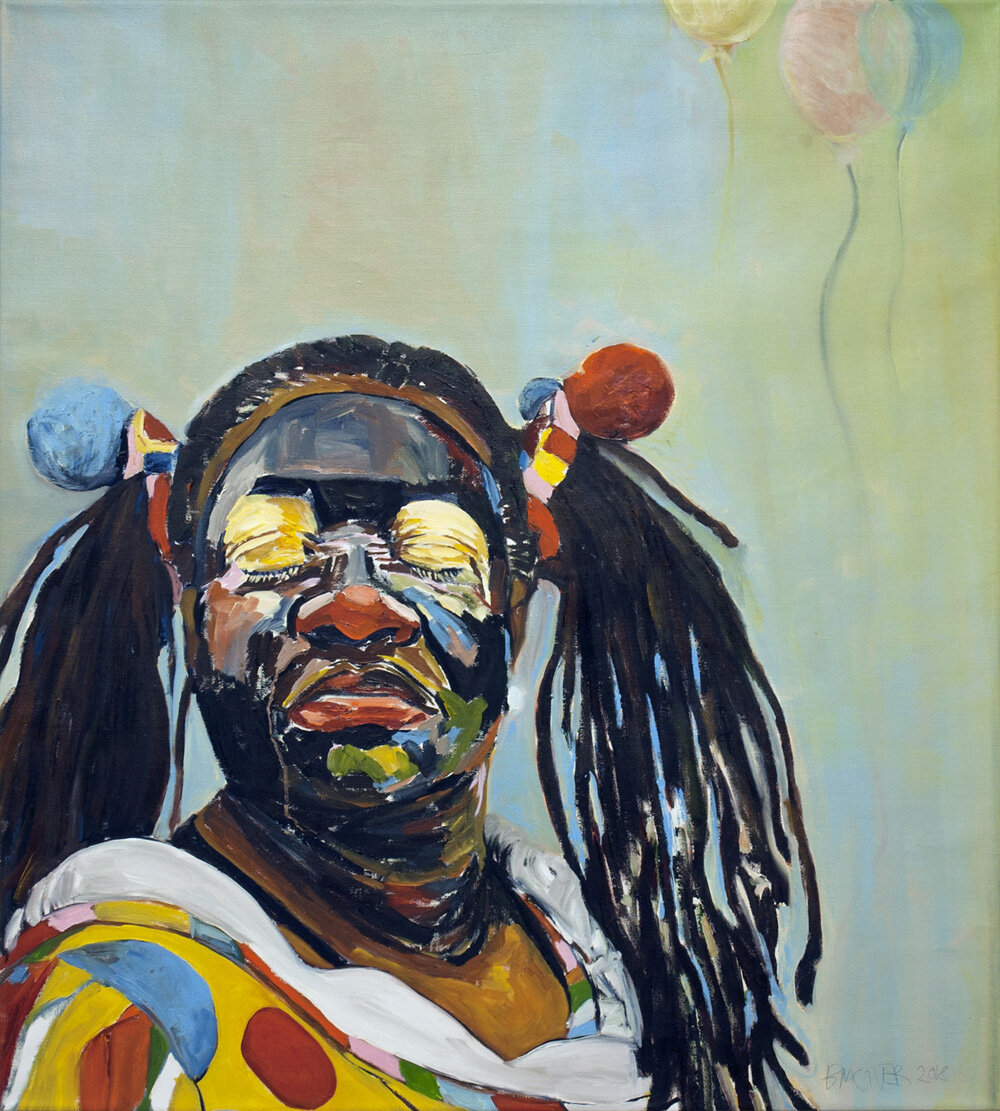BEVERLY MCIVER
“While McIver’s paintings have strong social overtones, they are also extremely personal. Her subjects are limited primarily to herself, her mother, and her older sister, Renee, but McIver considers all her works to be self-portraits, using others’ faces to express her own emotions.”
— Paula Wasley, ARTnews, Behind The Makeup, November 2006
Beverly McIver (b. 1962 Greensboro, NC) has gained national prominence for her artwork, which challenges cultural assumptions about race and identity. McIver's paintings are a voyage in self-revelation from her earlier self-portraits in white face (the clown) to black face (confronting the black stereotype); to the unmasking of her skin, body and feelings as she explores her identity as an artist and as an African American woman. Her autobiographical work becomes a means to explore "otherness" and its many manifestations, from family roles to racial, gender, social and occupational identities.
McIver's work is in the permanent collection of the North Carolina Museum of Art, the Weatherspoon Art Museum, the Baltimore Museum of Art, the NCCU Museum of Art , the Asheville Museum of Art, The Crocker Art Museum, and the Nasher Museum of Art at Duke University, as well as significant private collections. McIver has received numerous grants and awards including a Rome Prize Fellowship, a John Simon Guggenheim Fellowship, a Radcliffe Fellowship from Harvard University, a Marie Walsh Sharpe Foundation award, a distinguished Alumni Award from Pennsylvania State University, a Louis Comfort Tiffany Foundation Award, and a Creative Capital grant. She is currently the Ebenshade Professor of the Practice in Studio Arts at Duke University.
Beverly McIver, Peace, 2018, oil on canvas, 43.25 × 39 inches

